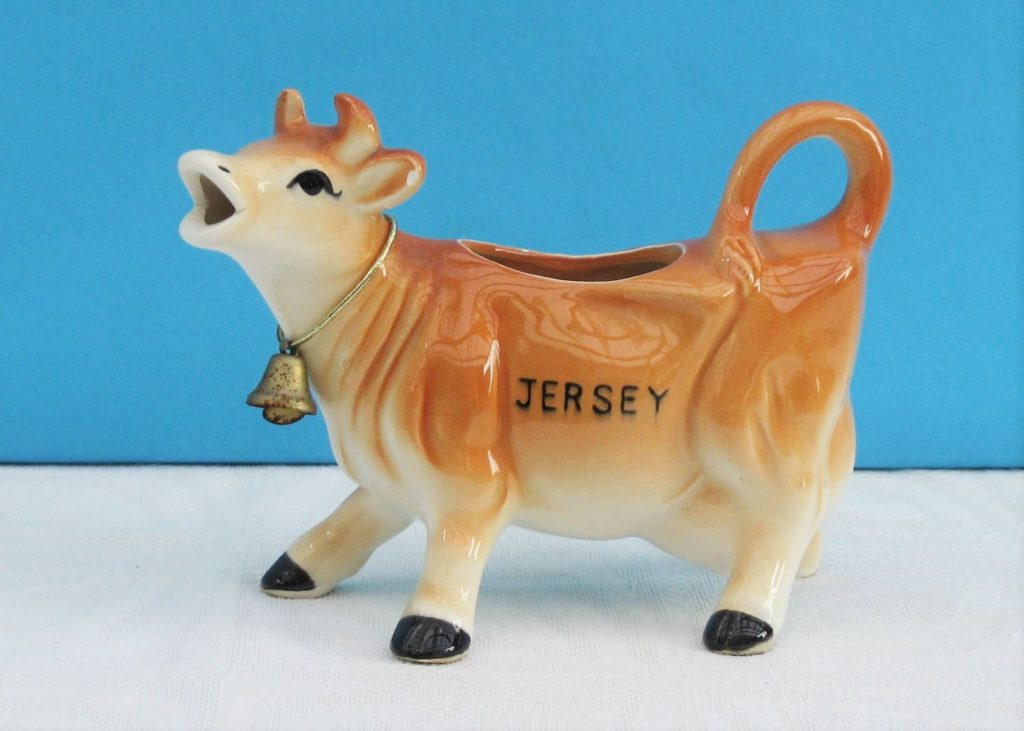Throughout its long history, still life has taken many forms, from the decorative frescoes of antiquity to the high art of the Renaissance. Traditionally, a still life is a collection of inanimate objects arranged as the subject of a composition. Nowadays, a still life can be anything from your latest Instagram latte art to a vase of tulips styled like a Dutch Golden Age painting.
Task 1 “The Beauty of the Common Tool”




Beauties of the Common Tool, Rephrased II, 2013
Fibre-based handprint, mounted, wooden frame with museum glass
ca. 90 x 70 cm
What you must do…
Walker Evans greatly influenced Darren Harvey-Regan, and both artists paid careful attention to choice of objects, composition, lighting and exposure values.
You must explore the work of both artists (create a blog post that compares and contrast their work) and develop a range of images in response to their outcomes. For this, you will need to use the selection of heritage objects we have provided for you and we wil l show you various lighting arrangements too.
Task 2 Developing still life ideas
Mary-Ellen Bartley “7 Things again and again”.
Inspired by minimalist sculpture and painting, these simple but effective still life studies encapsulate the formal elements . Artists such as Giorgio Morandi have a clear influence here…and again there is a strong connection between painting and photography, historically and traditionally.






What you must do…
Collect a group of objects that you think combine well. Consider shape and size, colour, texture etc.
Then look carefully at what / how Mary Ellen Bartley groups, lights and photographs her objects. Aim to create a set of images by altering the layout, lighting, focus, composition etc.
Print some of the results off — and then rip, tear, cut-n-paste to create a photo-montage. Re-photograph this and develop the composition into a final outcome.
Lastly, print off a selection of carefully chosen images that you can then paste to either foamboard or cardboard. Then cut and arrange these choices so that you can create a free-standing photo-sculpture like Lethe Wilson (below)


Task 3 Symbolism and Metaphor – Vanitas
Vanitas Art and Photography
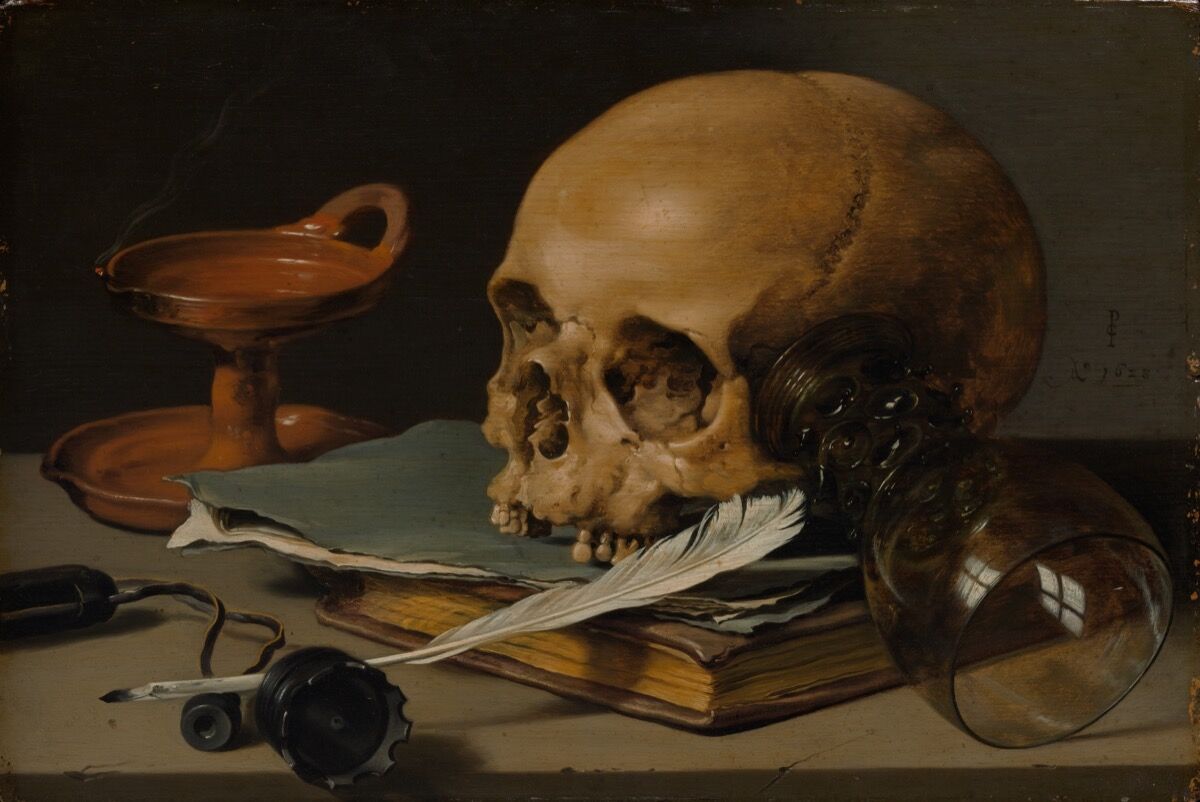
A vanitas is a symbolic work of art showing the transience of life, the futility of pleasure, and the certainty of death, often contrasting symbols of wealth and symbols of ephemerality and death.
The term originally comes from the opening lines of the Book of Ecclesiastes in the Bible: ‘Vanity of vanities, saith the Preacher, vanity of vanities, all is vanity.’
Vanitas are closely related to memento mori still lifes which are artworks that remind the viewer of the shortness and fragility of life (memento mori is a Latin phrase meaning ‘remember you must die’) and include symbols such as skulls and extinguished candles. However vanitas still-lifes also include other symbols such as musical instruments, wine and books to remind us explicitly of the vanity (in the sense of worthlessness) of worldly pleasures and goods.

Inspired by the works of 17th century Old Master still life painters such as Giovanna Garzoni and Maria Sibylla Merian, American photographer Paulette Tavormina creates stunningly lit imagery of fruits and vegetables immersed in dark atmosphere

A perfect example of the old technique getting combined with modern-age ideas is Mat Collishaw’s Last Meal on Death Row series of works. Although they appear as meticulously arranged staged photography still lifes of food, each image is actually based on death row inmates’ last meals before they are executed. Apart from the eerie subject, the pictures deliver a strong drammatic effect through an excellent use of chiaroscuro.

On a much more lighter, even pastel note, we have Dutch photographer Krista van der Niet, whose compositions often include fruits and vegetables mixed with mundane objects such as socks, cloths and aluminum foil, giving it all a contemporary feel. Her photos often carry a dose of satire as well, which references consumerism and popular culture through a clever employment of objects within a carefully composed scenery.
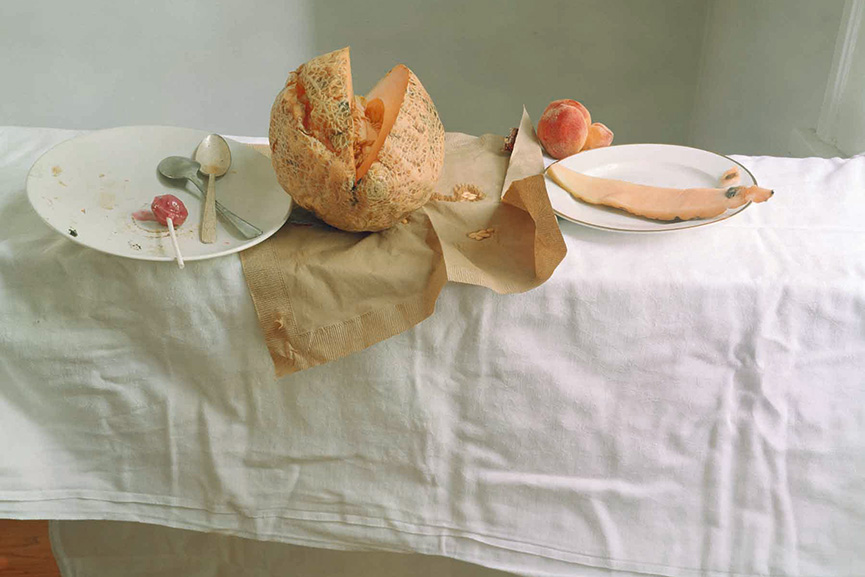

Experimenting with the endless possibilities of light, self taught photographer Olivia Parker makes ephemeral constructions. She started off as a painter, but soon turned to photography and quickly mastered the way to incorporate an extensive knowledge of art history and literature and reference the conflicts and celebrations of contemporary life in her work. Over the many years of her artistic career, her style remained fluid, yet consistent
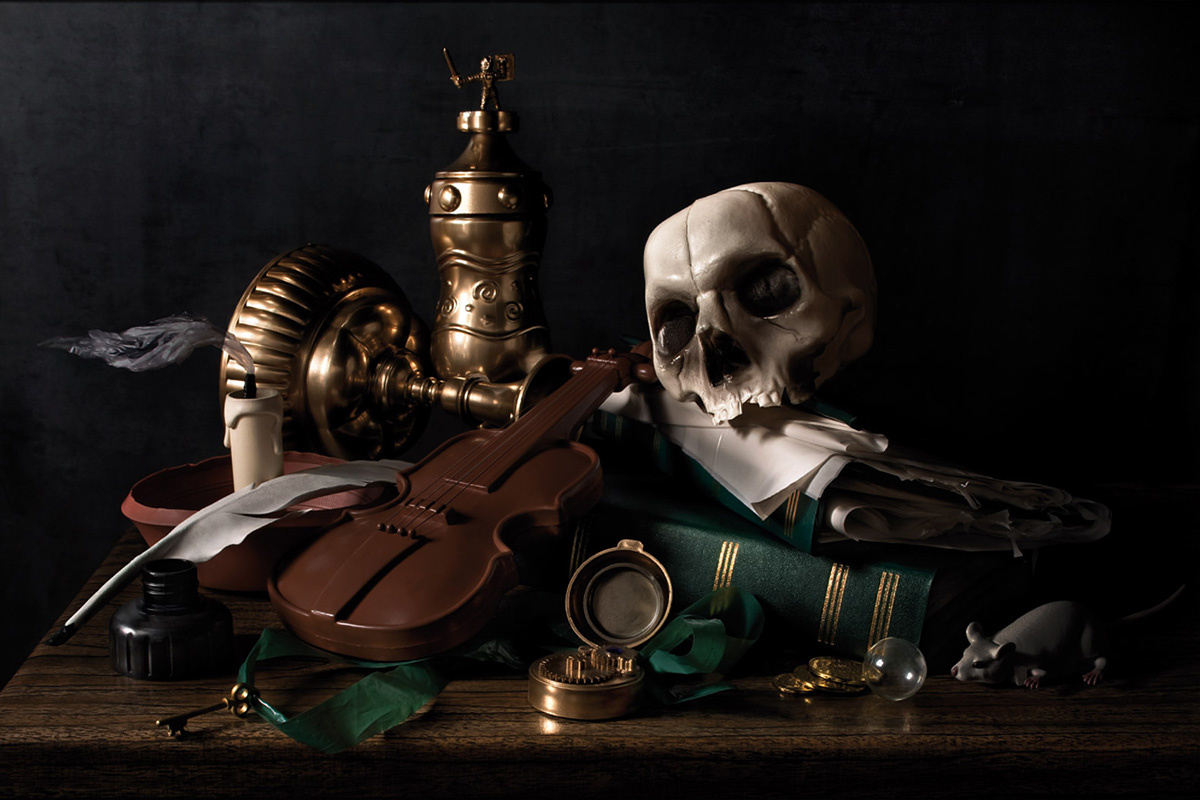
Think paintings by Pieter Claesz or Adriaen Coorte, only in plastic. That’s how one could describe the photographs of Richard Kuiper, whose objects are all made of this everlasting, widely used material, including water bottles, floral arrangements, even the feathers. The artist tries to draw our attention towards the excessive use of plastic in our everyday lives, with the hope we will be able to decrease it before it takes over completely.
What you must do…
Respond to one of the artists above and create a set of images that clearly shows your understanding of…
Light
Shape
Shadow
Composition
Metaphor
Symbolism
Memento Mori
A series of blog posts should now show a combination of visual experiments, Adobe Lightroom selections and adjustments, 3-5 final images and an evaluation
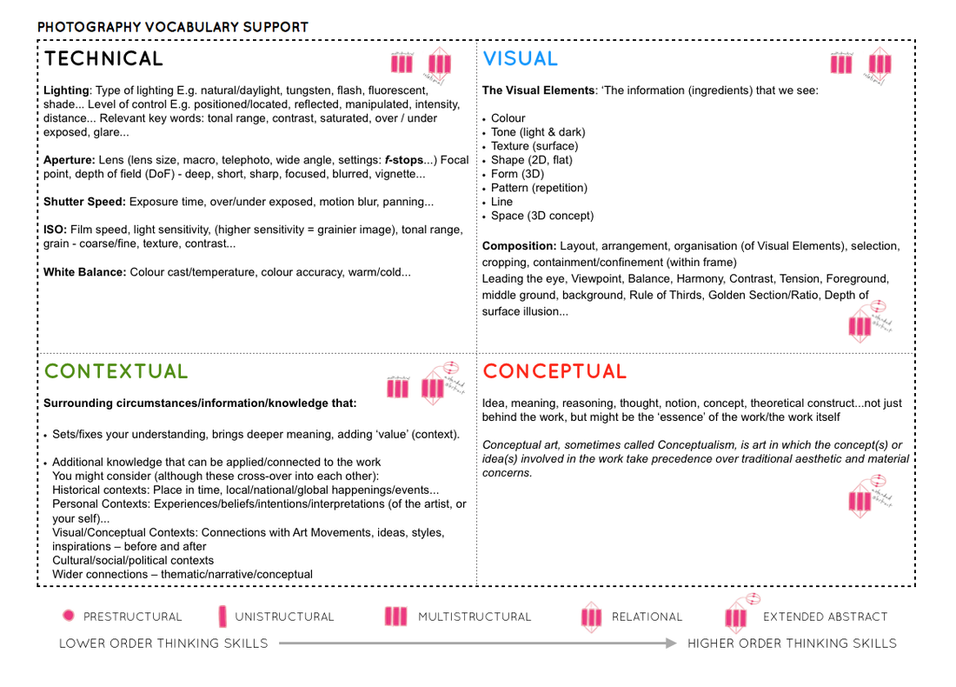
Due Date : Friday 12th November





